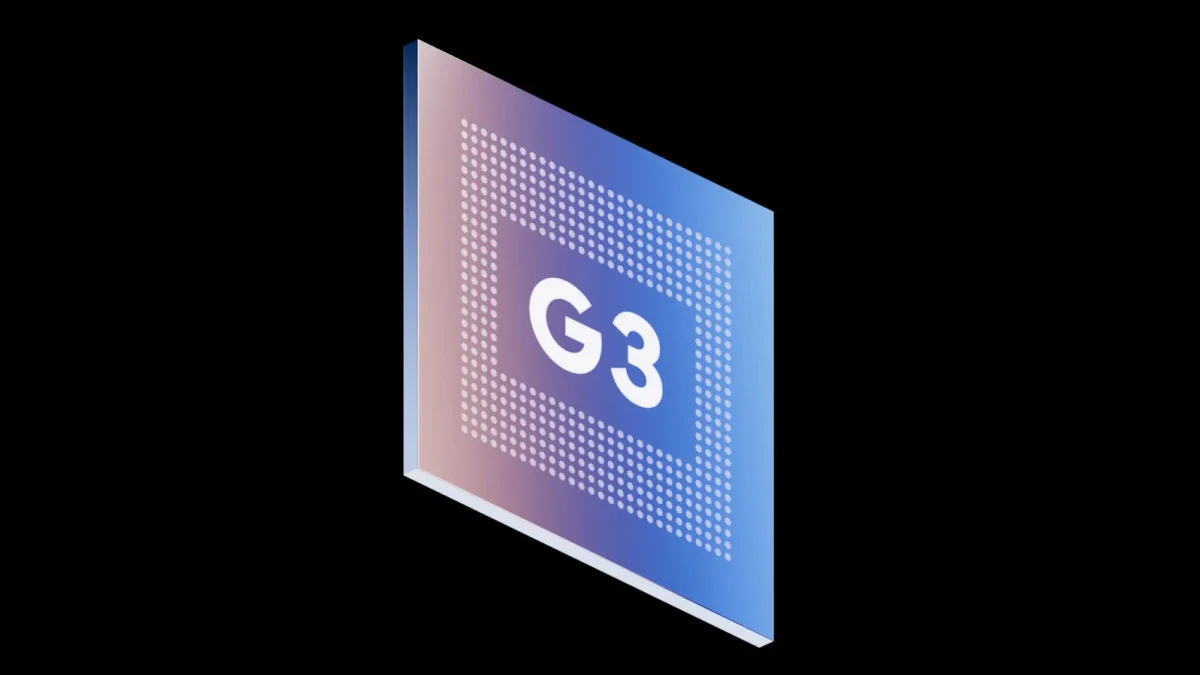If TSMC builds the fully customized Tensor G5 chip, the 2025 Pixel 10 could see another price hike

The Google Tensor G3 chipset that powers the Pixel 8 and Pixel 8 Pro might be able to help the new Pixel phones handle some of the AI features debuting on the devices although some features, possibly including the Magic Editor, go through Google servers and might not actually use the Tensor G3 SoC. The Magic Editor allows users to move and re-size a subject in a picture, change the background lighting of a photo, and more. Another new AI feature is the Audio Magic Eraser which eliminates some distracting sounds made on the audio track of a video you've recorded.
The problem is that when it comes to raw power and energy efficiency, the Tensor G3 can't approach the recently announced Snapdragon 8 Gen 3 or even a three-year-old Apple A-series application processor. As noted by Wccftech earlier this month, the Geekbench battle between the A14 Bionic and the Tensor G3 saw Apple's older SoC winning both single-core (2139 vs. 1760) and multi-core (5093 vs. 4442) tests. Reportedly, Google wants the Tensor chips to ooze performance and efficiency like Apple's chips do.
The first Tensor chip "fully customized by Google" is expected to be the 2025 G5 for the Pixel 10 series
As we've noted before, the Tensor G4 that will be found inside next year's Pixel 9 series will not be the first Google-customized chipset although that was the original plan. That honor will belong to the Tensor G5 which will fittingly be found inside the Pixel 10. According to "X" tipster @OreXda, the Tensor G4 CPU will be designed by Samsung or Google. The latter firm will design the GPU and the Backend.
Tensor G1
Tensor G2
- CPU : Designed by Samsung
- GPU : Designed by Samsung
- Backend : Designed by Google
- CPU : Designed by Samsung
- GPU : Designed by Google
- Backend : Designed by Google
Tensor G3
- CPU : Designed by Samsung
- GPU : Designed by Google
- Backend : Designed… pic.twitter.com/njx3COvyKz— Connor / 코너 / コナー (@OreXda) October 27, 2023
Even if Google has its hands in designing most of the G4, there isn't expected to be much of an upgrade until the Tensor G5 which the tipster says will be completely designed by Google. The Tensor G5 could end up being made by TSMC using its 3nm process node. However, switching from Samsung Foundry to TSMC will cost Google more money and that might force Google to hike the price of the Pixel 10 series or accept a lower profit margin.
On the other hand, if Samsung Foundry can show that its 3nm process node can match TSMC, especially when it comes to yield, Google might continue to give Samsung the business. And speaking about business, in the U.S. Google raised the price of the Pixel 8 and Pixel 8 Pro by $100 so if Google feels comfortable with Samsung Foundry, perhaps the Pixel 10 series won't require a price hike after all.
Google hopes that the Tensor G5 is completely free of Samsung's influence
The problem here is that it is just too early to know. A former Google executive said during the summer that the Tensor G4 will only be partially customized by Google while the Tensor G5 will be completely designed by Google and will also feature advanced packaging technology. The former Google executive also said that the company didn't know whether it was worth the extra expense to build custom chipsets for the Pixel line since the phone has not been a huge seller ever since Google released the first Pixel and Pixel XL models in 2016. Google hopes that the Tensor G5 will be completely free of Samsung although it still plans on licensing CPU cores from Arm.
The Tensor chips have slowly improved since the Tensor G1, an Exynos 2100 with major modifications, was used to power the Pixel 6 series. With its focus on AI, it will be interesting to see what new features Google will design into the Tensor G5 and whether those features can help sell the Pixel 10 and Pixel 10 Pro to more consumers in 2025.
Follow us on Google News













Things that are NOT allowed:
To help keep our community safe and free from spam, we apply temporary limits to newly created accounts: